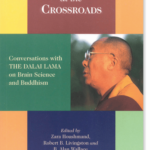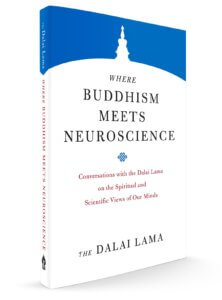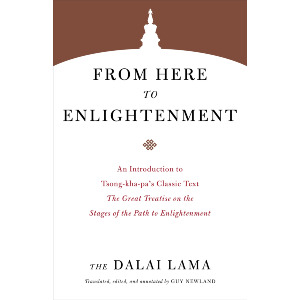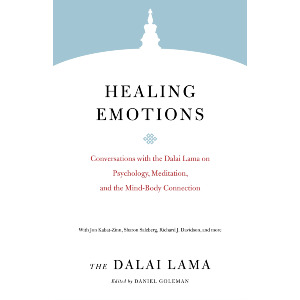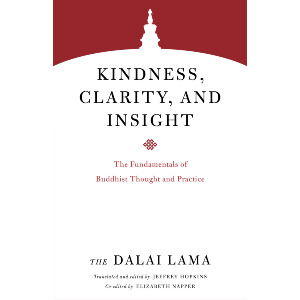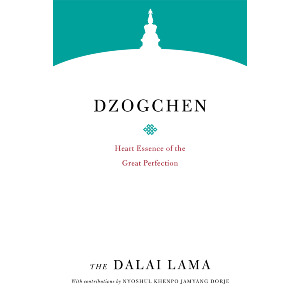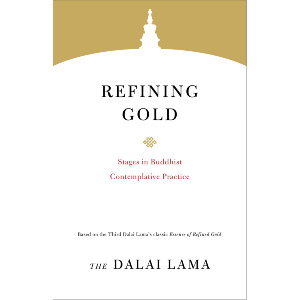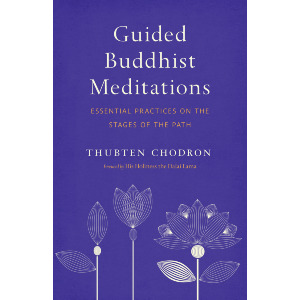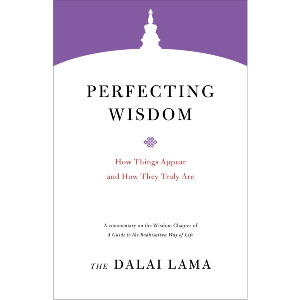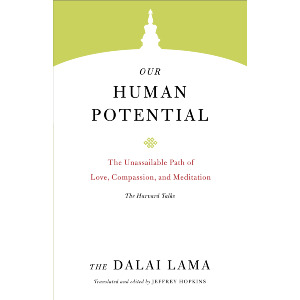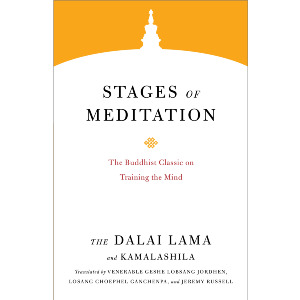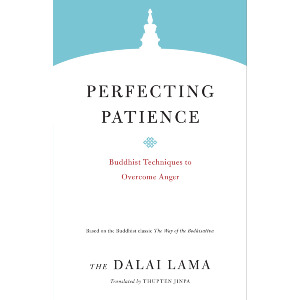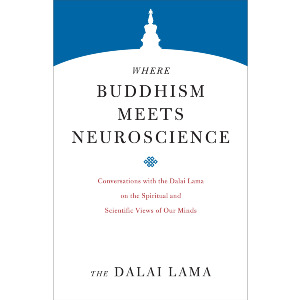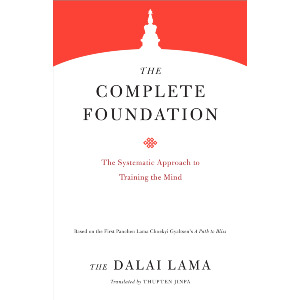| The following article is from the Summer, 1999 issue of the Snow Lion Newsletter and is for historical reference only. You can see this in context of the original newsletter here. |
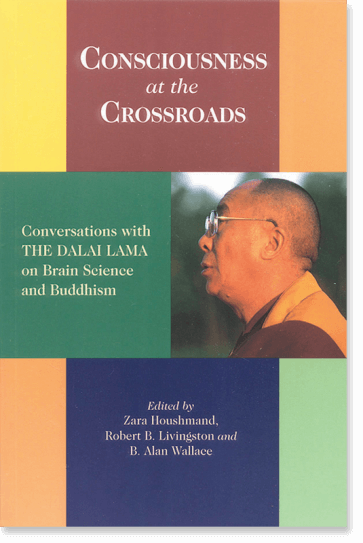
By H.H. the Fourteenth Dalai Lama
Edited by Zara Houshmand
Edited by Robert B. Livingston
Edited by B. Alan Wallace
*Note, Consciousness at the Crossroads is now published under the title Where Buddhism Meets Neuroscience and is part of The Core Teachings of the Dalai Lama.
This book addresses some of the most fundamental and troublesome questions that have driven a wedge between the realms of Western science and religion for centuries. Consciousness at the Crossroads is the result of a series of meetings between the Dalai Lama and a group of eminent neuroscientists and psychiatrists. The Dalai Lama regularly dedicates several days out of his busy schedule to engage in these kinds of meetings, which have resulted in more than a decade of fruitful dialogue between Buddhism and Western science.
Is the mind nothing more than an ephemeral side-effect of the brain's physical processes? Are there forms of consciousness so subtle that science has not yet identified them? How does consciousness begin? How do we know what we know? Buddhism, with its emphasis on empirical observation of mental processes, offers insights into these thorny questions, while the Dalai Lama's own incisive, clear approach and openminded pursuit of knowledge both challenges and offers inspiration to Western scientists.
Born in Amdo, Tibet in 1935, Tenzin Gyatso was recognized as the Fourteenth Dalai Lama, spiritual and temporal leader of Tibet. He has served as head of the Tibetan government-in-exile in Dharamsala, India, since the Chinese takeover of Tibet in 1959. Winner of the 1989 Nobel Peace Prize, today he is known the world over as a great spiritual teacher and a tireless worker for peace.
Following are excerpts from the the conference's opening remarks by Robert Livingston.
This initiates the second dialogue between Western neurosciences and Buddhist traditions. These two radically different ways of looking at mind and life have existed, mostly apart, over a span of about 2,500 years. They have been following such separate paths that there has been almost no cross-communication. So for all of us this is a significant opportunity. We anticipate that the Mind and Life dialogues will improve and increase communications and strengthen ties in terms of mutual understanding of neurosciences, consciousness, brain, mind, and the like, and also add new insights into human nature which we believe can contribute to world peace.
There are indeed two great fundamentals underlying this dialogue. First, the issues up for discussion here are not only of great importance in each individual human life, but their comprehension by a wider public may indeed be pivotal for human survival on a global scale. Such issues relate to individual and collective differences in perception, judgment, behavior, and communication. And second, the human brain is the only resourceful instrument for survival. It has always been obliged to beand continues to beconstructively adaptive. Yet its full potential will not be realized until the brain is better understood, particularly in terms of its individuality and the consequent diversity of world views.
We pay our respects to two cultural traditions which have been separated for so very long and now have a cordial opportunity for exchange by virtue of your curiosity, initiative, and generosity. This opens for neuroscientiSts an excellent opportunity for professional enrichment because Buddhists have been thinking about consciousness, mind, and body for a very long time along different conceptual paths. We must acknowledge our own humility and naivete: there are many things that we don't yet know about the brain and the mind, so many about which we are unsure, and others still about which we remain unknowingly in error.
We shall attempt to represent Western neurosciences in a fair way. We can then become your allies in helping insofar as possible to increase mutual understanding in both directions, and to dissolve barriers that have too long separated these two insight-seeking cultures In the process, it should be possible to devise innovative experimental strategies directed to objectifying phenomena studied according to both traditions.
Many fundamental concepts are swiftly changing in Western neurosciences' views relating to brain mechanisms. So we must stay tuned in order to move together within this tumbling stream of scientific innovation.
One of the fundamentals underlying these dialogues is our mutual concern for world peace. We sincerely believe that several pertinent disciplines from both traditions are of great importance for humanity to help in the development of more rational human self-knowledge, crosscultural mutual understanding, and compassion, all urgently needed to safeguard this planetary habitat and to ensure equitable sharing of its bounty.

